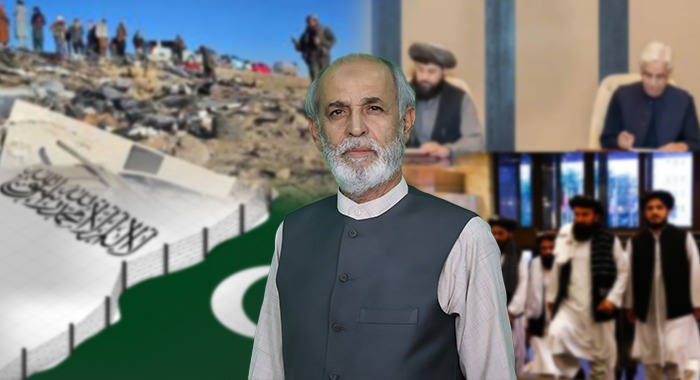(Shamim Shahid)
The failure of yet another round of discussions between Pakistan and the Afghan Taliban in Istanbul has once again highlighted the deep-rooted mistrust and conflicting priorities that continue to define relations between the two neighbours. Despite the efforts of mediating countries including Turkey, Qatar, Iran, and China, both sides remain entrenched in their respective positions, unwilling to concede ground on key security and political issues.
At the core of this stalemate lies Pakistan’s long-standing demand that Afghan Taliban take decisive action against the banned Tehreek-e-Taliban Pakistan (TTP), whose cross-border attacks have intensified in recent months. The Taliban, however, maintain that the TTP issue is an internal matter of Pakistan and that no militant group is operating from Afghan soil. They argue that since the border between the two countries has been fenced and tightly controlled, it is not possible for any organized militant group to cross into Pakistan.
This firm denial by the Taliban has complicated Pakistan’s position. Islamabad believes that Kabul’s reluctance to rein in the TTP stems not only from ideological alignment but also from broader geopolitical calculations particularly Afghanistan’s ties with regional powers and its independent foreign policy approach. The Taliban leadership insists that Afghanistan, as a sovereign state, has the right to pursue its own foreign relations without external interference, including its engagement with countries like India, which Pakistan views with suspicion.
Despite these challenges, there remains cautious optimism among mediators. Countries such as Turkey, Qatar, and Iran all of which maintain working relations with both Islamabad and Kabul are actively encouraging continued dialogue. They are aware that an open conflict between Pakistan and Afghanistan would not only destabilize the region but could also fuel militant activity and humanitarian crises on both sides of the border.
Interestingly, the role of global powers cannot be ignored in this equation. The recent praise for Pakistan by US President Donald Trump and statements from Russian President Vladimir Putin warning against any military escalation in Afghanistan indicate that the great powers still view the Pakistan-Afghanistan theatre as critical to their strategic interests.
The Taliban today are not the same as those who once fought against the United States. The Doha Agreement established a new kind of relationship between the Taliban and America. Though not openly visible, the contacts continue through Qatar, where the Taliban’s political office still operates and where the US maintains its largest military base in the Arab world.
If the Istanbul talks collapse completely, both countries would still eventually seek a political patch-up. Even if conflict breaks out, it would be short-lived. Afghanistan’s military capacity is limited, and sustained confrontation is not possible. In the end, diplomacy will prevail, because neither side can afford prolonged instability.
Turning to domestic politics, also expressed concern over the delay in forming the provincial cabinet in Khyber Pakhtunkhwa. He said the ongoing political uncertainty could weaken governance, deepen rifts within the ruling PTI, and erode public confidence in the provincial government. When a province lacks an effective cabinet, departments become directionless, and the political vacuum encourages further divisions.
On the recent call for peace from within the Khyber Pakhtunkhwa Assembly, he said the initiative reflects the collective desire of all communities for stability and development. Everyone in the province wants p no one supports terrorism or extremism. But true peace cannot come without coordination between the federal and provincial governments.
Pakistan must now prioritize its own national interest and avoid being used as a pawn in regional rivalries. We have suffered enough over the past forty years .politically, economically, and socially. It is time to focus on our own stability, implement the National Action Plan in letter and spirit, and ensure that no external power uses Pakistan again for its strategic ends





